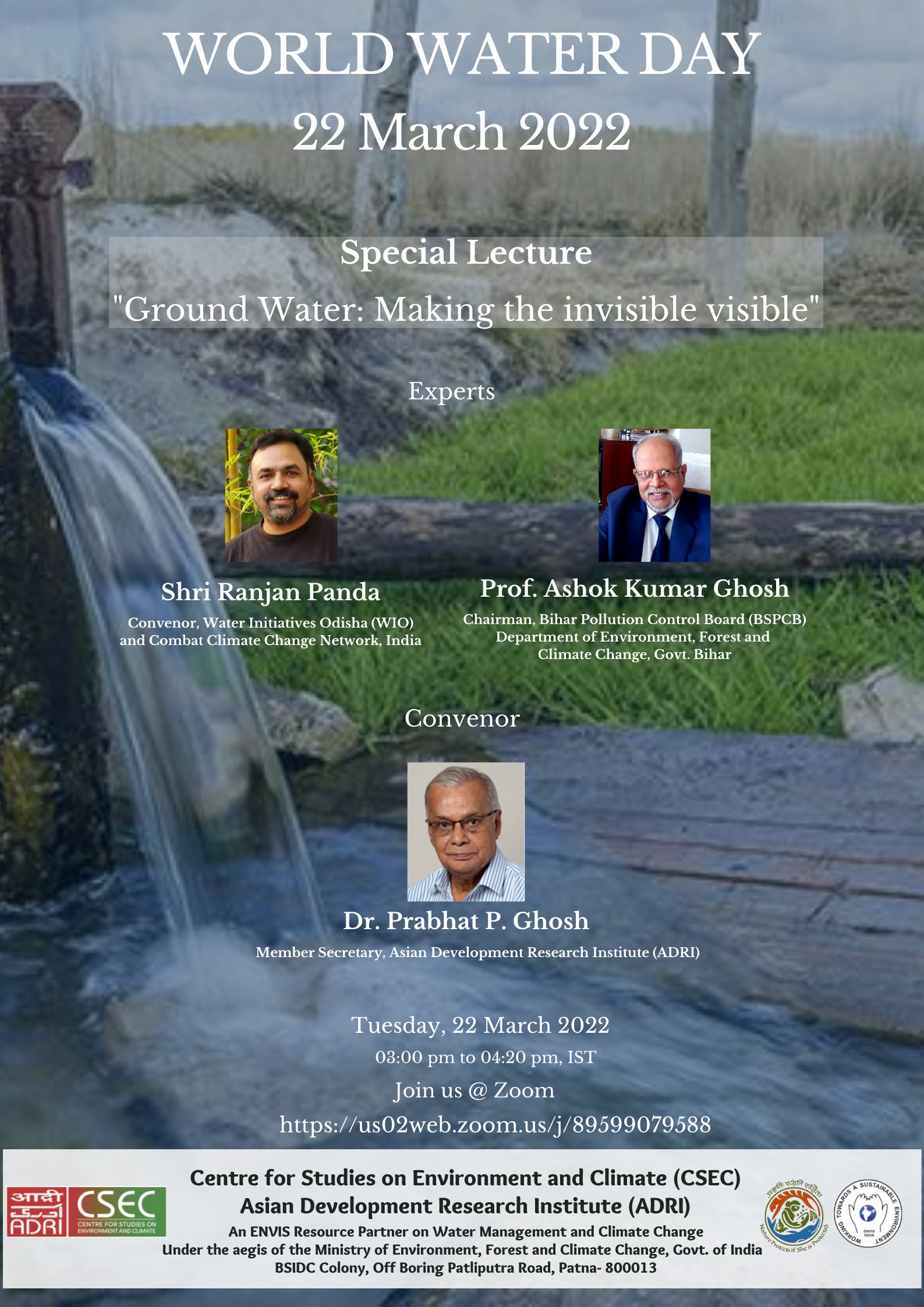Events of EIACP

Speaker : Professor Ashok Kumar Ghosh, Chairman at Bihar State Pollution Control Board (BSPCB) and Mr. Ranjan Panda, Convenor at Water Initiatives Odisha (WIO)
Lecture Brief
pollution, water logging, salinity, etc. are major consequences of overexploitation and intensive irrigation. Depletion of water tables, saltwater encroachment, drying of aquifers, groundwater. A severe groundwater crisis currently prevails in Bihar due to over-discovering and contamination of groundwater which covers almost 60% of all districts in Bihar and represents a risk to the safe drinking water of the population, since over 8 percent of drinking water in Bihar is fulfilled by the groundwater resources. Accesses to safe and clean drinking water along with sanitation are basic human needs. It is fundamentally linked to health and well-being. Water is a state subject and the Government of India supports states’ endeavours in providing drinking water.
The multifarious challenges around groundwater such as contamination, overexploitation have a direct impact on the socio-economic profile in Bihar. It has also observed significant research and development gaps in groundwater resources. Therefore, putting such discourse at the forefront, on the occasion of ‘World Water Day’, the Centre for Studies on Environment and Climate at Asian Development Research Institute is organizing special lectures on ‘Groundwater resources: making the invisible visible’. The special lecture will be delivered by subject experts to put special emphasis on the following discourse:
- Finding a solution in conservation: can we bank on traditional water harvesting systems to solve our current day water crisis;
- Status of groundwater quality, with special reference to portable water resources.
Patna, March 22. On the occasion of World Water Day, to highlight challenges around Groundwater Resources, a special lecture was organized by the the Centre for Studies on Environment and Climate (CSEC) at the Asian Development Research Institute (ADRI). The lectures were delivered by Professor Ashok Kumar Ghosh, Chairman at Bihar State Pollution Control Board (BSPCB) and Mr. Ranjan Panda, Convenor at Water Initiatives Odisha (WIO).
Mr. Ranjan Panda enlightened the audience on the need of traditional knowledge in water harvesting, as each region needs a region specific strategy. Several level of intervention are required at the moment, an integration of traditional and the modern system.
Thereafter, Professor Ashok Kumar Ghosh pointed out the increasing level of water contamination along with water stress across India. He also stated how common people often misinterpret the quality of groundwater by its appearance, without any knowledge about the dissolved contaminants.
Dr. Prabhat P Ghosh, Member-Secretary from ADRI delivered the welcome address. He focused on the existing water resources of India, with specific reference to Bihar.
Mr. Vivek Tejaswi, other participants were— Ms. Debarupa Ghosh and Ms. Ghazal Hashmi from CSEC, ADRI. The faculties and students from Patna Women’s College were also present in the programme.